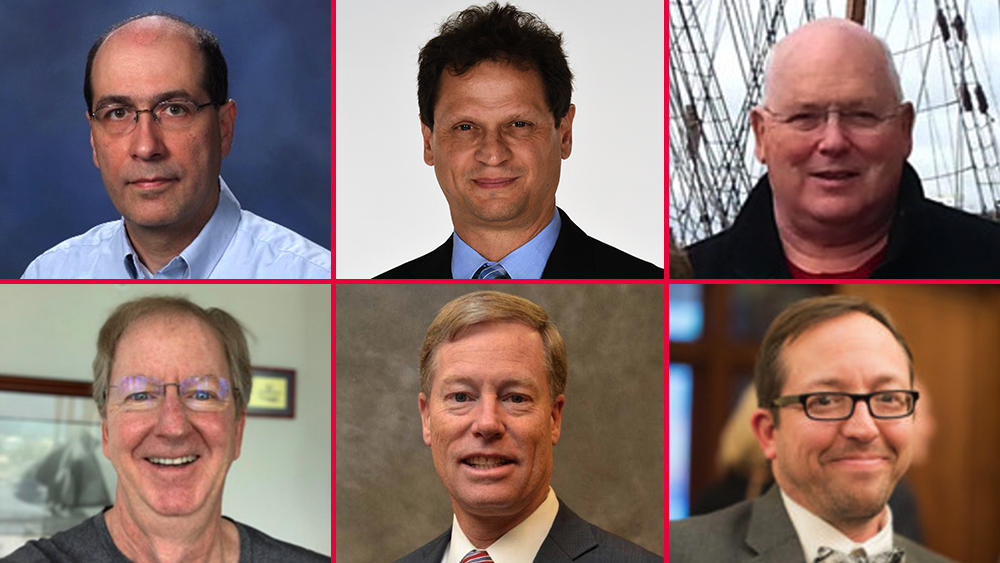
With the economy looking toward the oceans as the engine for sustainable and equitable progress, the blue economy movement means that emphasis must be placed on increasing the safety of offshore assets.
On Sept. 29, 2021, to delve deeper into the emerging issues surrounding such economic expansion, the Department of Ocean Engineering at Texas A&M University hosted an offshore safety industry panel with five experts from various areas of the profession and one faculty member. The department plans to host one industry panel each semester related to a prevailing topic in the field, moderated by department head Dr. Sharath Girimaji.
This panel, hosted virtually, included:
- Dr. Jeffery Falzarano, Texas A&M ocean engineering professor
- Dr. Alberto Morandi, general manager at GustoMSC in Houston
- Peter Noble, president and principal advisor at Noble Associates Inc.
- Richard Simpson, creative director at Innovative Collaboration and Solutions
- Adm. Jim Watson, consultant, former director at the Bureau of Safety and Environmental Enforcement and former president and chief operations officer for the American Bureau of Shipping, Americas Division
- Evan Zimmerman '98, group chief executive of Merman Group Ltd.
“There are very few (documentaries) that praise engineering as engineering marvels, rather they highlight engineering failures,” said Noble. “That’s part of the perception that we have to deal with as engineers. In the good old days of engineering, engineers were heroes. Today, we’re not seen that way. And I think that’s a fundamental thing we need to work on in our communication. The reason we live safe and healthy lives is because of technology.”
Falzarano, who has more than 30 years of naval architecture experience, said when he thinks of advancing offshore safety, he first thinks of notable past accidents. As he explained, to understand how to increase safety, researchers must study post-accident investigations, continue to conduct stability design assessments and operational monitoring, and research new approaches to stability and issue management.
Morandi, also a naval architect with 35 years of experience, described one framework for action engineers could take to help avoid future accidents.
“If you look at what the U.S., Europe and Asia are committed to doing, we are looking at 254 gigawatts of offshore wind by 2030,” said Morandi. “This is more than the 40 largest hydroelectric dams in operation. So, we are going to have to learn very quickly and develop technology quickly and safely.”
Morandi explained that it’s important for engineers to have a base understanding of marine structures, rigs and vessels and the issues they might encounter, such as in stability and watertight integrity, station keeping, structural and foundation integrity or tie-downs. And, by correctly reporting and learning from smaller issues or “near misses,” professionals can be proactive in reducing the potential for large-scale accidents that cause major injury or financial losses.
However, Morandi concluded, sometimes accidents happen even when existing practices and reporting have been adequate. This makes it even more important to review accidents and learn from past events to understand the deviations that could have caused them and improvements needed to prevent reoccurrence.
Noble, a marine and ocean engineer who has worked at shipyards, oil companies and classification societies, discussed the difference between safety and risk and the levels of safety.
As he described, there are three areas of safety. Personnel safety involves keeping people safe. Environmental safety encompasses keeping the environment safe and reducing the risk of harm, such as an oil spill or emissions. And asset safety, which includes the product — the ship or the offshore platform or oil rig that a company paid for. Each of these is governed differently.
Simpson, a master mariner with command experience, has some 40 years involved with a wide range of vessel types worldwide, both onboard and in shoreside management. During the panel, he stressed the impacts of design impacts versus operational errors. He urged the audience to focus on fundamental engineering practices.
He also explained that the simplest of design errors often became the biggest issue because they were overlooked. Risky operations garner lots of attention, but routine activities involving poor designs — such as a masthead light that must be changed in a less than ideal way or simply boarding a vessel — tend not to be recognized as significant hazards.
Watson spoke on the importance of preparedness before an accident. To do so, engineers need to develop relationships with key project players in their field and government before an accident occurs and have contingency plans in place that are tested regularly. They must also standardize crisis terminology into a common language, such as the Incident Command System in the U.S.
Watson said crisis management and safety require a plethora of people coming together in a unity of effort.
Zimmerman encouraged the audience to think about the full life cycle of the system they are designing. As he explained, it’s important to make sure to have a diverse set of perspectives, both making up the team and the mentors who are able to provide input into the concept of the asset. On that same note, he also emphasized the importance of a design basis in industry. Having good engineering practices includes asking the right questions and being able to evaluate the potential options for design and execution when considering all angles of a project.
“There’s really no greater time for an engineer to make an impact than at the beginning of the design process,” he said. “Because those decisions made at the very beginning could either prevent those future incidents from occurring or can actually enable them.”
These comments are part of a larger conversation. For a full video version of the panel, please contact Meredith Brown.